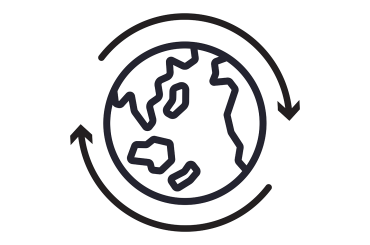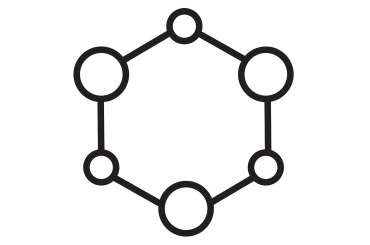Are you eager to learn how chemistry can contribute to a more sustainable future? How chemistry is essential to the energy, resource and material transition? Or how your ideas and creativity can translate to sustainable, safe and circular processes? Then we are eager to meet you.
Starting September 2024
Our society is facing major transitions in using energy, resources and materials. These transitions will lead us towards a more sustainable society relying on circular product chains. This new two-year programme will provide you with the skills and knowledge to help create a better future. Next to a strong theoretical and experimental base in chemistry, you will acquire skills and tools to understand chemical processes in the broader context of health, environment, and society. You will gain hands-on experience with the design of new, safe, and sustainable routes for making (new) chemicals and materials.
Redesigning chemistry for a sustainable future
With this programme, we aim to train the chemists of the future, who are able to contribute to broader sustainability issues with a strong molecular chemistry basis and a broadened view on the more systemic challenges of sustainability. You will learn theoretical and practical aspects of molecular and materials chemistry, e.g. for catalysis or environmental science. At the same time, you will develop a systems thinking mindset and apply it to the design of new, safer chemical products and synthesis routes. This highly relevant knowledge and future-proof skill set will allow you to make an impactful contribution to the transitions towards a more sustainable and circular society.
Make the difference
The transitions cannot be solved by chemists alone. The programme actively prepares you for a research-based career in a multidisciplinary environment, either in academia or industry. We cater for a tailored and flexible study programme to fit the sustainable chemistry interests of the student. Our courses offer a strong foundation in chemistry, connected to the real world by crossing disciplinary boundaries and including aspects of systems thinking, 'safe and sustainable-by-design', environmental science, data analysis, life-cycle analysis, and circularity and sustainability. Our research develops new fundamental science, but also has a strong application part based in industrial collaborations, which offers many possibilities for internships.
Why in Utrecht
- The world-class teaching staff and research facilities of the Institute for Sustainable and Circular Chemistry (ISCC) provide an excellent environment for your development.
- Our interdisciplinary education provides you with a unique combination of skills and knowledge to maximize societal impact
- Strong links with industry, which allows for both strong fundamental as well as applied research and internships.
- ISCC researchers hold top-positions in various national and international rankings, which draw an international group of researchers, and allows for unique networking opportunities.
Which chemistry programme is for you?
Utrecht University offers two Master's programmes in Chemical Sciences. Check which programme best fits your interests.

Sustainable and Circular Chemistry
At the interface between Chemistry and
Health, Environment & SocietyMain themes are Molecular chemistry, Materials science, Catalysis, and Sustainability
You will learn how to design novel, safe, and sustainable routes for making (new) chemicals and materials.
Chemistry is put in a broader, systems perspective

Nanomaterials Science
At the interface between Chemistry and Physics
Main themes are Colloids and bio-inspired materials, Catalysts and energy materials, Nanophotonics and quantum materials
You will learn how to make, model and use nanomaterials to find unique solutions for the transition to a sustainable society
Chemistry is put in a fundamental and interdisciplinary perspective
Key facts
- Degree:
- Chemical Sciences (MSc)
- Language of instruction:
- English
- Mode of study:
- Full-time
- Study duration:
- 2 years
- Start:
- September
- Tuition fees:
- Dutch and other EU/EEA students (statutory fee, full-time) 2024-2025: € 2,530
Non-EU/EEA students (institutional fee) 2024-2025: € 23,765
More information about fees - Croho code:
- 60706
- Accreditation:
- Accredited by the NVAO
- Faculty:
- Science
- Graduate school:
- Natural Sciences
- Brochure:
- Request a brochure

